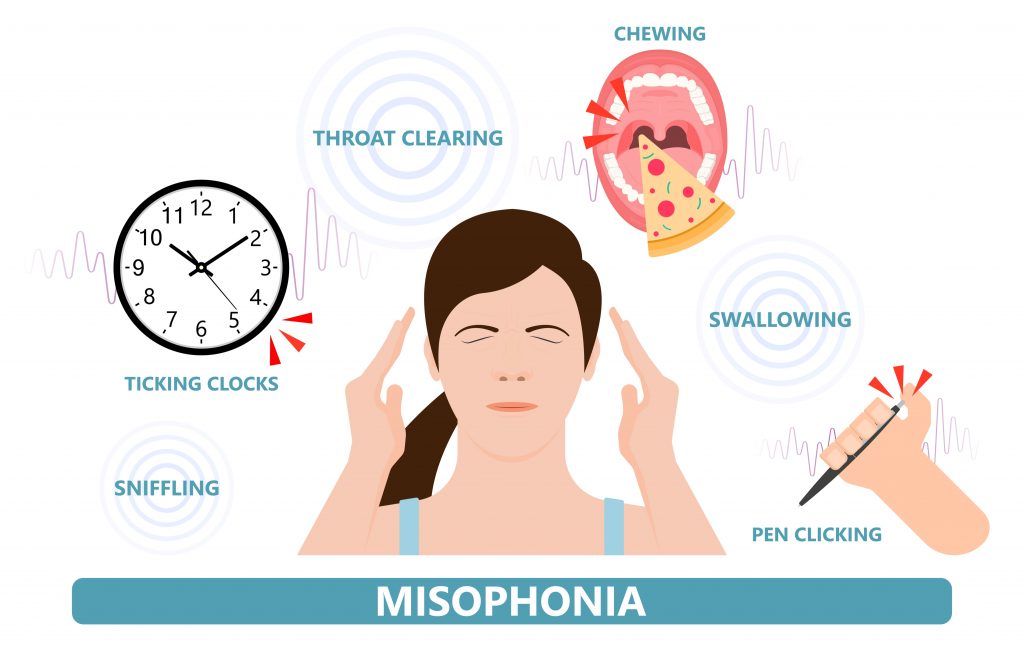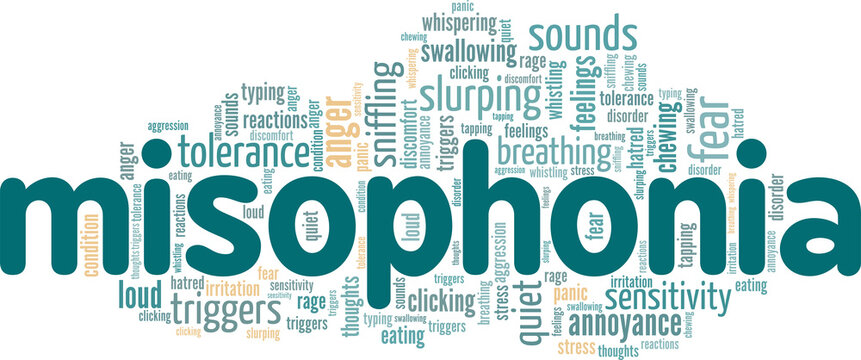
Misophonia and Hyperacusis have become increasingly reported in both the adult and pediatric populations. They are both characterized as sensitivity to sound and hearing which is why many seek advice and counsel with Audiologists. Both are characterized as an over-active auditory system which is what causes the adverse reactions to sound.
While misophonia causes an emotional reaction, hyperacusis results in physical pain in the ears. The degree of pain depends on the volume of the sound, so louder sounds tend to elicit a more painful reaction, however, intensity of sound is quite individual based on what every person perceives as loud. Pain can manifest as a sense of pressure in the ears (often associated with the middle ear) or as loud ringing in the ears (referred to as tinnitus).
Misophonia is characterized by anger, rage and an intolerance and sometimes violent or emotional reactions to sound. It is defined as a symptom related to the auditory system.
Emotional reactions can be as a result of:
- chewing
- a ticking clock
- eating noises
- throat-clearing
- swallowing
- sniffling
- tones and voices
- sirens



Hyperacusis is reported pain in response to sound and noise, but not with the associated rage and anger that are experienced with misophonia.

Treatments for Misophonia & Hyperacusis May Include:
- Hearing testing and/or Auditory Processing assessment to rule out hearing loss and/or processing difficulties.
- Wearing ear filter(s) to dampen noise.
- Wearing a sound masker (creates white noise).
- Relaxation exercises and meditation to reduce the reaction to sound.
- Sound therapy to acclimatize to every day sounds.
- Cognitive behavioural therapy (CBT) to change the way you think about hyperacusis and reduce anxiety.
- Psychotherapy to address the anxiety and emotions associated with sensitivity to sound.
- Sensory breaks in order to withdraw from noise (particularly in school or work environments).
Misophonia contributes to mental health concerns and often results in a ‘fight or flight’ response to the triggering sound. Triggers are different for each individual.
Misophonia might also be linked to a number of other conditions, including:
- depression.
- anxiety.
- obsessive-compulsive disorder (OCD)
- Tourette syndrome.
- tinnitus.
- post-traumatic stress disorder.

